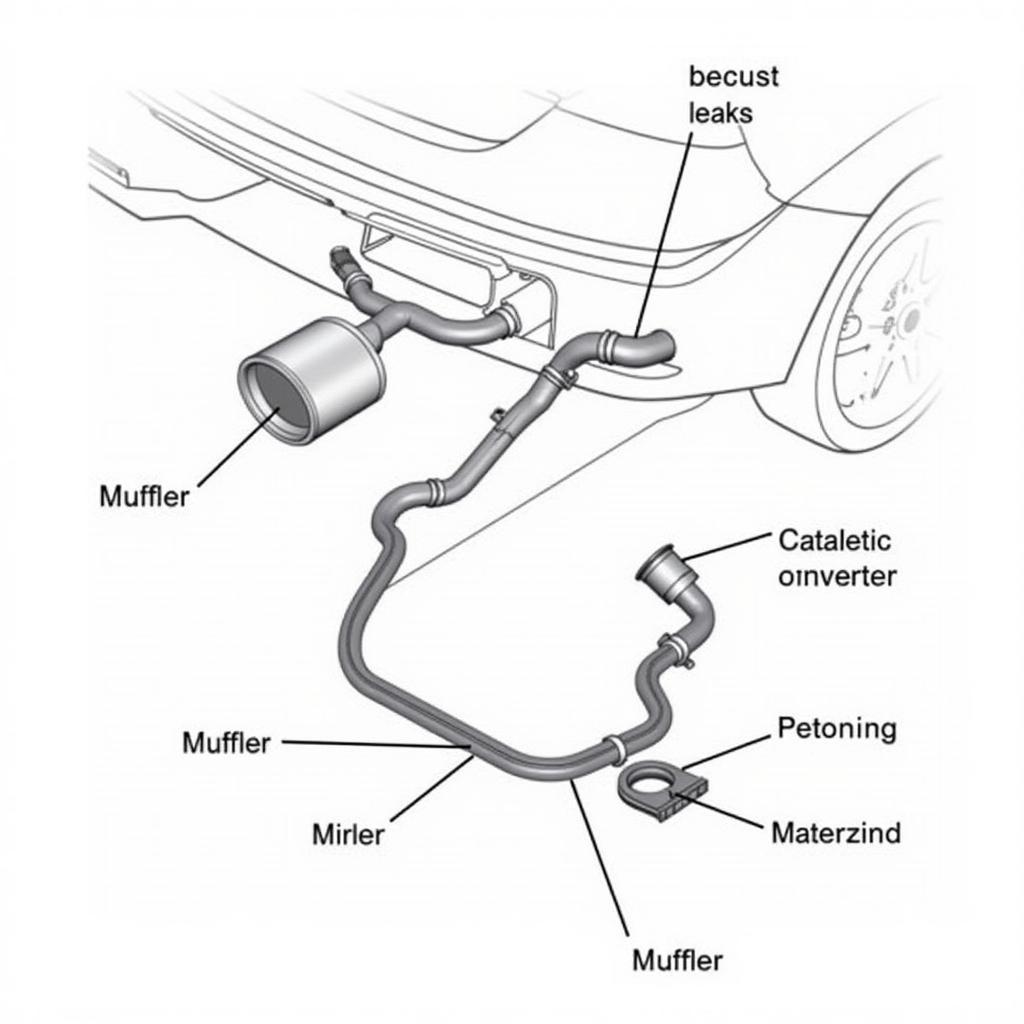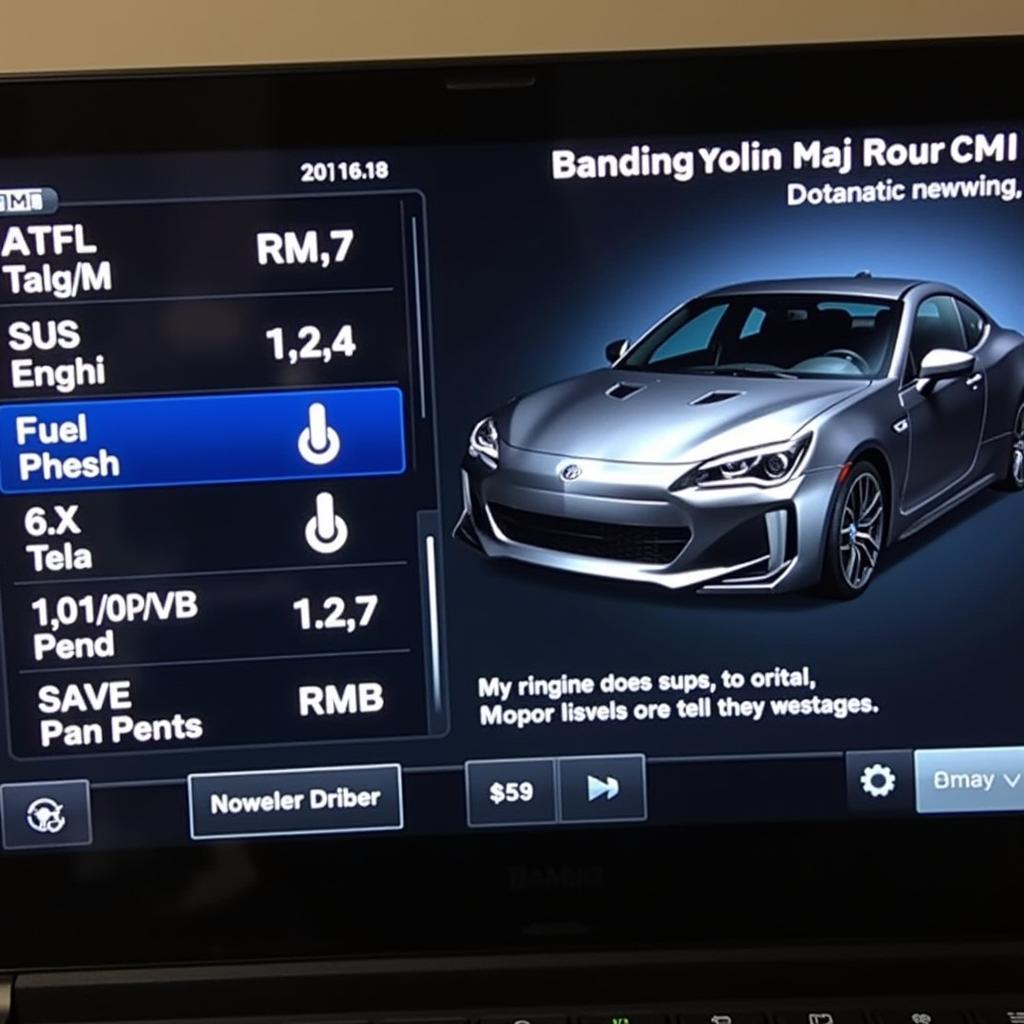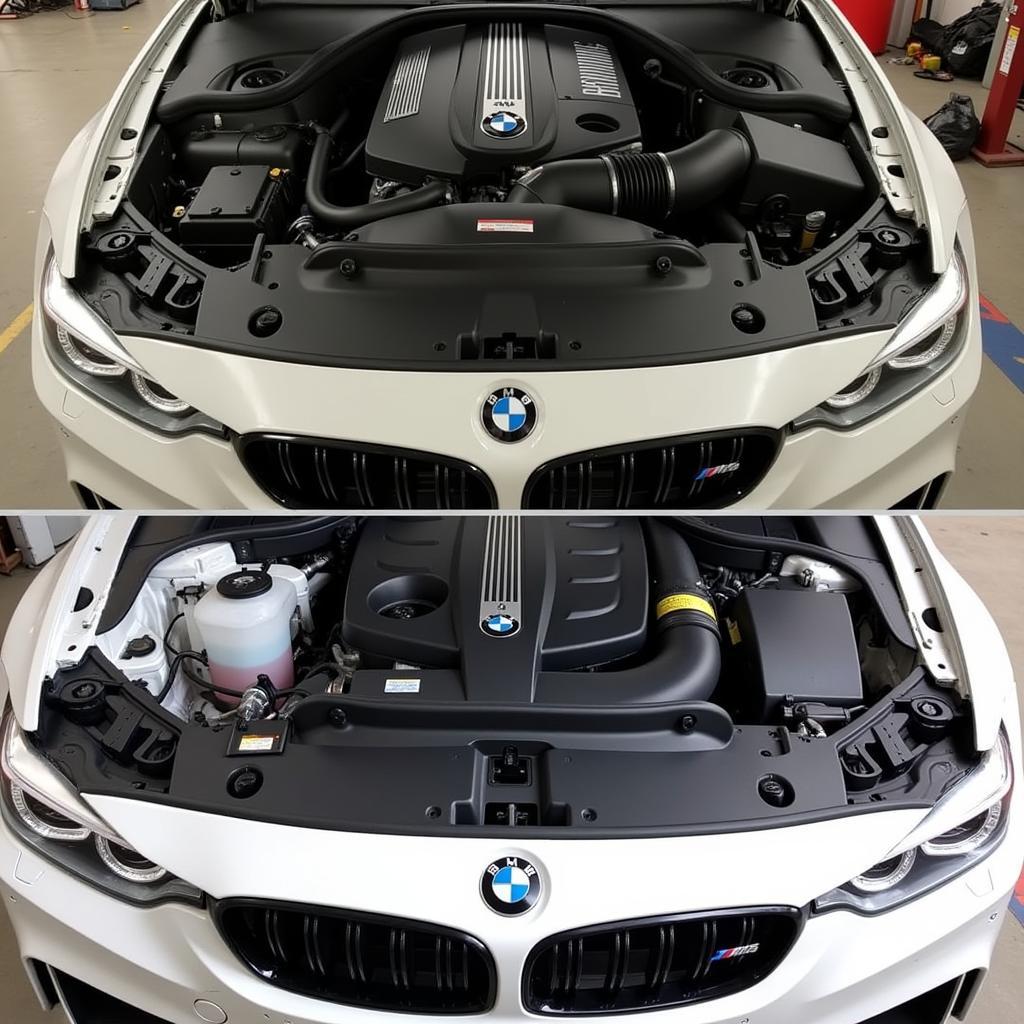The 2018 BMW M3 sound is a symphony of performance, a carefully orchestrated blend of power and precision. Whether you’re a prospective owner, a seasoned M3 enthusiast, or a car technician, understanding the nuances of this iconic engine note is crucial. This comprehensive guide dives deep into the world of the 2018 BMW M3 sound, exploring its characteristics, common issues, and how to diagnose and resolve them.
The potent S55 engine, the heart of the 2018 BMW M3, delivers an exhilarating auditory experience. From the deep growl at idle to the high-pitched scream at redline, the M3’s sound signature is unmistakable. But what happens when that signature sound goes wrong? What if a subtle whine replaces the roar, or a rattle disrupts the harmony? This is where understanding the complexities of the M3’s sound profile becomes paramount.
Decoding the 2018 BMW M3 Engine Note
The distinct sound of the 2018 BMW M3 is a product of its twin-turbocharged 3.0-liter inline-six engine. The turbochargers add a unique element to the acoustic profile, a whooshing sound that complements the engine’s natural growl. The exhaust system also plays a critical role, carefully tuned to amplify the desired frequencies and create a signature M3 sound.
Common Issues Affecting the 2018 BMW M3 Sound
Several factors can influence and sometimes negatively impact the 2018 BMW M3’s distinctive sound. These range from simple maintenance issues to more complex mechanical problems. Understanding these potential culprits is the first step towards diagnosis and resolution.
- Exhaust leaks: A leak in the exhaust system can introduce a hissing or rasping sound, disrupting the balanced tone.
- Turbocharger issues: A failing turbocharger can produce a whining noise, often accompanied by a loss of power.
- Valve problems: Worn or damaged valves can lead to ticking or tapping sounds, indicating potential engine damage.
- Carbon buildup: Excessive carbon buildup in the intake valves can affect engine performance and sound quality.
 2018 BMW M3 exhaust system diagram showing components and potential leak points
2018 BMW M3 exhaust system diagram showing components and potential leak points
Diagnosing 2018 BMW M3 Sound Problems
Diagnosing sound-related issues requires a keen ear and a systematic approach. Start by identifying the specific nature of the unusual sound. Is it a whine, a rattle, a hiss, or a knock? When does it occur? Under acceleration, deceleration, or at idle? Pinpointing these details will help narrow down the potential causes.
Utilizing Remote Diagnostics and Software Solutions
Modern diagnostic tools and software can significantly aid in identifying the root cause of 2018 BMW M3 sound issues. Remote diagnostics allow technicians to access vehicle data and pinpoint problems without physical access to the car. Software programming and updates can also address certain sound-related issues, particularly those related to engine management and exhaust control.
 BMW M3 diagnostic software interface displaying engine parameters and fault codes
BMW M3 diagnostic software interface displaying engine parameters and fault codes
Restoring the Iconic BMW M3 Engine Sound
Once the problem is diagnosed, appropriate repairs can be carried out to restore the 2018 BMW M3’s signature sound. This may involve replacing worn-out components, repairing leaks, or performing software updates.
- Exhaust system repairs: Addressing exhaust leaks through welding or replacing damaged sections can restore the balanced and powerful sound.
- Turbocharger replacement: A failing turbocharger will need to be replaced to eliminate the whining noise and restore performance.
- Valve adjustments or replacements: Addressing valve issues through adjustments or replacements can eliminate ticking or tapping sounds.
- Carbon cleaning: Removing carbon buildup from the intake valves can improve engine efficiency and sound quality.
 BMW M3 engine bay after repair showing clean and properly functioning components
BMW M3 engine bay after repair showing clean and properly functioning components
In conclusion, the 2018 BMW M3 sound is an integral part of the driving experience. Understanding its characteristics and common issues is crucial for maintaining optimal performance and enjoyment. By utilizing modern diagnostic techniques and addressing problems promptly, you can ensure that your M3 continues to deliver its iconic symphony of power and precision. If you’re experiencing any unusual sounds with your 2018 BMW M3, it’s crucial to address them quickly. Don’t hesitate to consult a qualified technician or explore remote diagnostic options.
FAQ
- What are the common causes of a whining noise in a 2018 BMW M3?
A whining noise can often indicate a problem with the turbocharger or other rotating components. - How can I diagnose an exhaust leak in my 2018 BMW M3?
Exhaust leaks can often be detected by a hissing or rasping sound. - Can software updates address sound-related issues in the 2018 BMW M3?
Yes, software updates can sometimes resolve issues related to engine management and exhaust control. - What is the best way to maintain the sound of my 2018 BMW M3?
Regular maintenance and addressing any unusual sounds promptly are crucial. - Where can I find reliable information about bmw m3 engine sound?
CARDIAGTECH offers valuable resources on BMW M3 engine sounds and diagnostics.
For further information and specialized assistance with your 2018 BMW M3 sound or any other automotive diagnostic needs, contact us via WhatsApp: +1 (641) 206-8880, Email: CARDIAGTECH[email protected], or visit our workshop at 276 Reock St, City of Orange, NJ 07050, United States. Our team provides 24/7 customer support.
